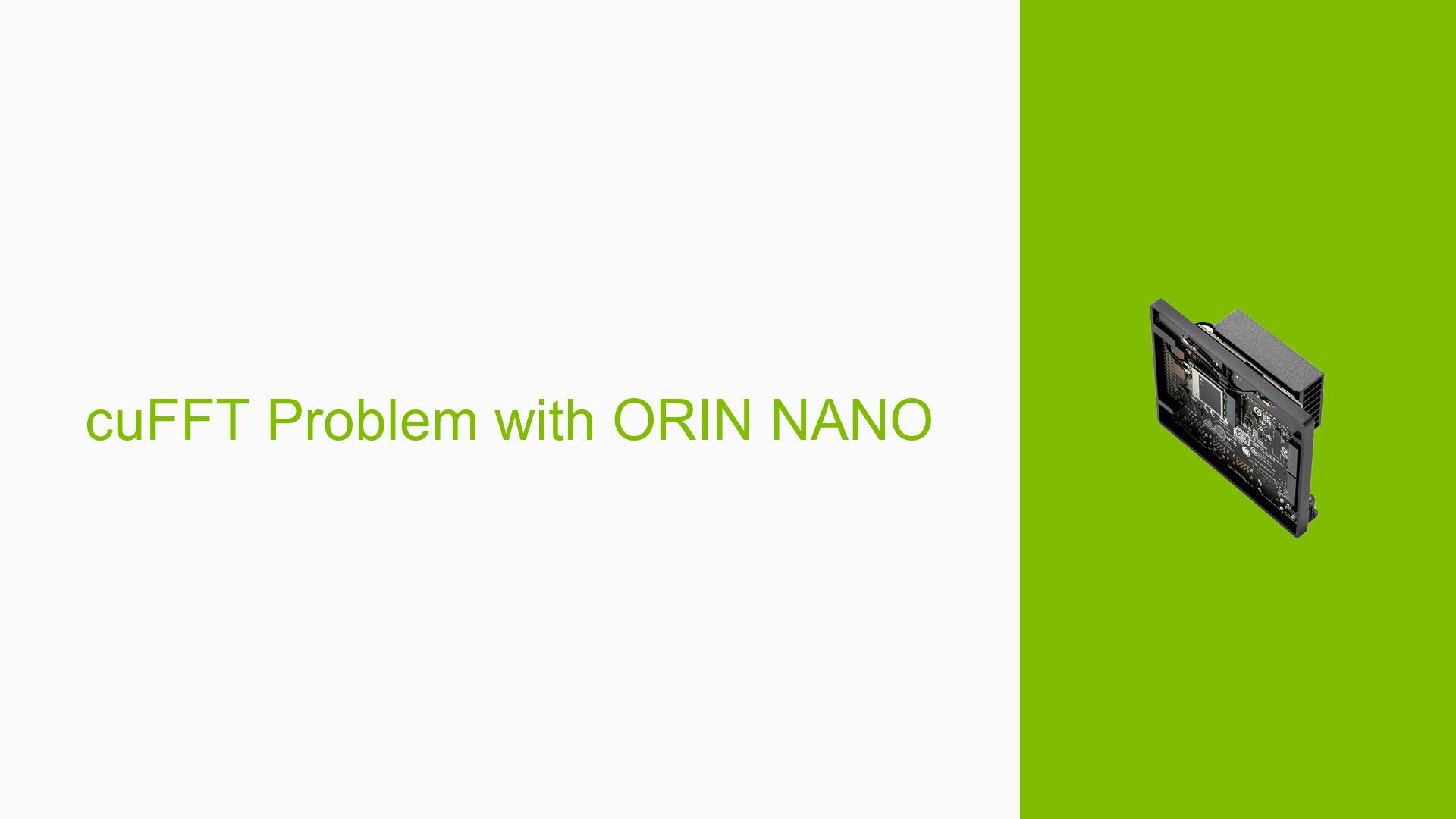cuFFT Problem with ORIN NANO
Issue Overview
Users are encountering issues when using the cuFFT library on the Nvidia Jetson Orin Nano Dev board, specifically when performing a 1D FFT (R2C) transformation. The symptoms include unexpected non-zero values in the output array when the input size (nfft) exceeds a certain threshold (2000).
Specific Symptoms
- When
nfftis set to 3000 or larger, the output array elements fromoutput[1501]tooutput[4501]are not zero, contrary to expectations based on the cuFFT manual. - For smaller values of
nfft, such as 2000, the output behaves as expected, with elements beyondN/2 + 1being zero.
Context of the Problem
- The issue arises during the execution of the FFT transformation, specifically when using a batch size of 2.
- The code snippets provided indicate that the FFT transformation is being conducted with various configurations for
nfftandbatch_size.
Hardware and Software Specifications
- Platform: Nvidia Jetson Nano 8GB
- Software: JetPack 5.1.1
- Library: cuFFT
Frequency and Impact
- This problem seems to occur consistently when using larger input sizes with a batch size of 2.
- The impact on user experience includes confusion regarding the validity of output data and potential errors in subsequent processing steps that rely on correct FFT results.
Possible Causes
-
Library Behavior: The cuFFT library may not guarantee that unused buffer areas are initialized to zero, leading to unexpected values in output arrays.
-
Batch Size Configuration: Differences in behavior between batch sizes may indicate that the library handles memory allocation or initialization differently based on this parameter.
-
Input Size Limitations: There may be implicit limitations within cuFFT regarding maximum input sizes or how they are processed.
-
Configuration Errors: Incorrect parameters passed to
cufftMakePlanMany()could lead to unexpected results.
Troubleshooting Steps, Solutions & Fixes
Step-by-Step Diagnosis
-
Verify Input Parameters:
- Ensure that all parameters passed to
cufftMakePlanMany()are correct. For example:cufftResult res = cufftMakePlanMany(plan, rank, n, inembed, istride, idist, onembed, ostride, odist, CUFFT_R2C, batch_size, worksize);
- Ensure that all parameters passed to
-
Test Different Configurations:
- Change
batch_sizefrom 2 to 1 and observe if the output behaves as expected:int batch_size = 1; // Change this value
- Change
-
Check Output Values:
- After executing
cufftExecR2C(), inspect the output array directly to confirm which indices contain non-zero values.
- After executing
-
Memory Initialization:
- Explicitly initialize output buffers before use to avoid reading uninitialized memory:
cudaMemset(d_output, 0, sizeof(output_type) * n_output.size());
- Explicitly initialize output buffers before use to avoid reading uninitialized memory:
Potential Fixes
- If non-zero values persist in unused portions of the output array:
- Consider using a different library like FFTW if consistent behavior is required across different configurations.
Recommended Documentation and Updates
- Review the cuFFT documentation for any notes regarding buffer initialization and memory handling.
- Ensure that you are using the latest version of JetPack and cuFFT libraries for any bug fixes or improvements.
Best Practices for Prevention
- Always initialize device memory before use.
- Test with various configurations during development to identify potential issues early.
- Consult community forums or documentation for updates regarding known issues with specific library versions.
Unresolved Aspects
Further investigation may be needed into how cuFFT handles memory allocation for different batch sizes and input sizes. Users experiencing similar issues should monitor updates from Nvidia regarding any potential fixes or changes in library behavior.
